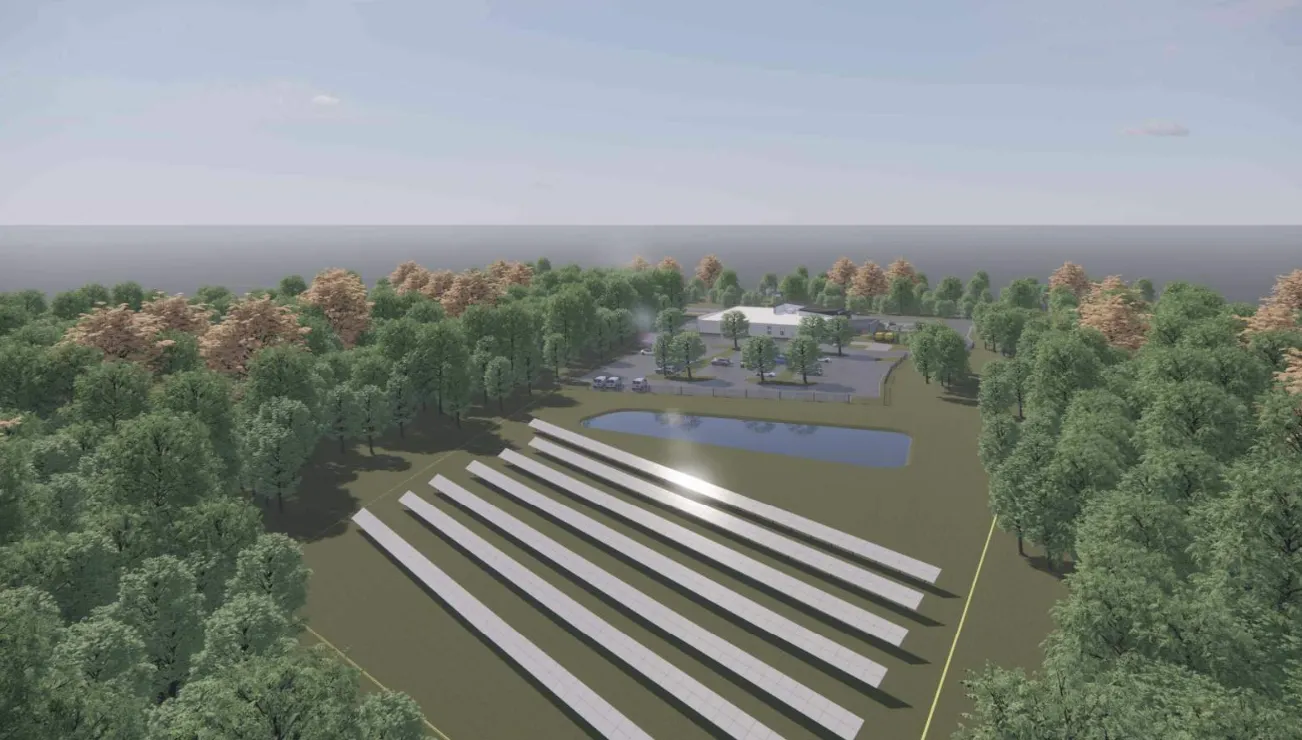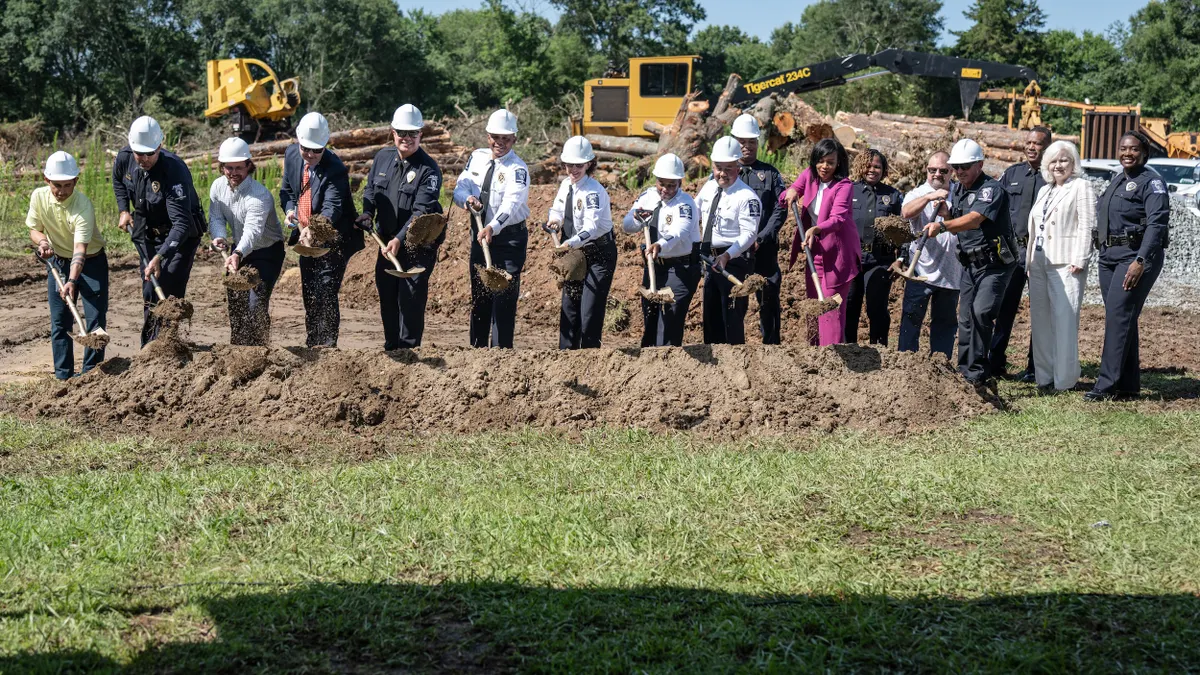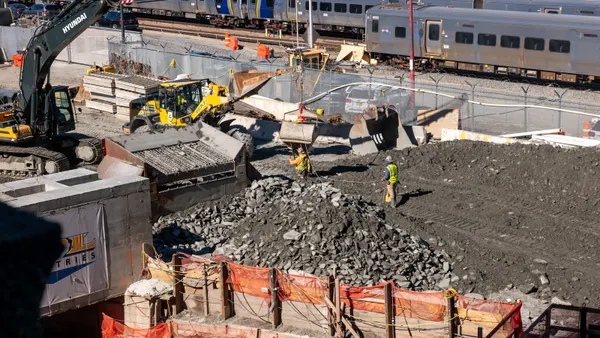Dive Brief:
-
Charlotte, N.C., is building the Southeast’s first all-electric fire station and first net-zero police station.
-
The facilities are contributing to Charlotte’s Strategic Energy Action Plan, a resolution to fuel its fleets and facilities with 100% zero-carbon sources by 2030.
-
The $16.4 million firehouse “will serve as a model for other cities looking to invest in sustainable and effective emergency response infrastructure,” Charlotte Fire Chief Reginald Johnson said in a statement.
Dive Insight:
Charlotte City Council adopted an updated Strategic Energy Action Plan outlining “bold goals to reduce greenhouse gas emissions, transition to clean energy and create a more resilient community” in May. The plan builds on the city’s Charlotte Future 2040 Comprehensive Plan, adopted in 2021.
The Strategic Energy Action Plan outlines five steps to move the city toward zero-carbon: shifting energy demand, reducing energy consumption, changing the type of energy consumed, generating energy on-site and purchasing the remainder of energy from zero-carbon sources.
The city tapped Swinerton Builders to build the firehouse and the $19.7 million station for the Charlotte-Mecklenburg Police Department’s Northwest Division. Swinerton last year broke ground on the 14,000-square-foot Firehouse #30, which is expected to be completed this month. It broke ground on the police station, which it anticipates will be complete in September 2026, in June.
“Being able to be part of the building process and see some of the different features that the city is starting to look at from a sustainability standpoint is really intriguing,” said Kevin Smith, vice president, division manager for Swinerton Carolinas Division.
Firehouse #30 is one of the first all-electric facilities of its kind in the U.S., according to Swinerton. Smith said the city stipulated the project qualify for U.S. Green Building Council Leadership in Energy and Environmental Design Silver certification, but it is on track to obtain LEED Gold.
The firehouse will house an all-electric Vector fire truck, expected to be the first of its kind to operate in the Southeast region.
The 16,000-square-foot police station will be climate-controlled by a geothermic well system that uses the earth’s stable temperature to heat and cool the building without fuel or electricity. A solar field is planned for powering the building’s infrastructure.

“I think it’s really awesome that our public safety is also being a symbol for innovation and sustainable technology throughout our city, because it’s really the interaction that a lot of our community has with the city first,” Robyn Byers, assistant director of Charlotte’s Office of Sustainability and Resilience, said at the June groundbreaking for the police station. “Again, it helps share that sustainability is important for the city as a whole.”
The city’s latest available benchmarking report showed an 8.2% decline in “energy use intensity” portfolio-wide from 2022 to 2023. However, the report also noted 56.3% of offices recorded increases in energy use intensity in 2023, signaling an “opportunity to review for improvements.”











